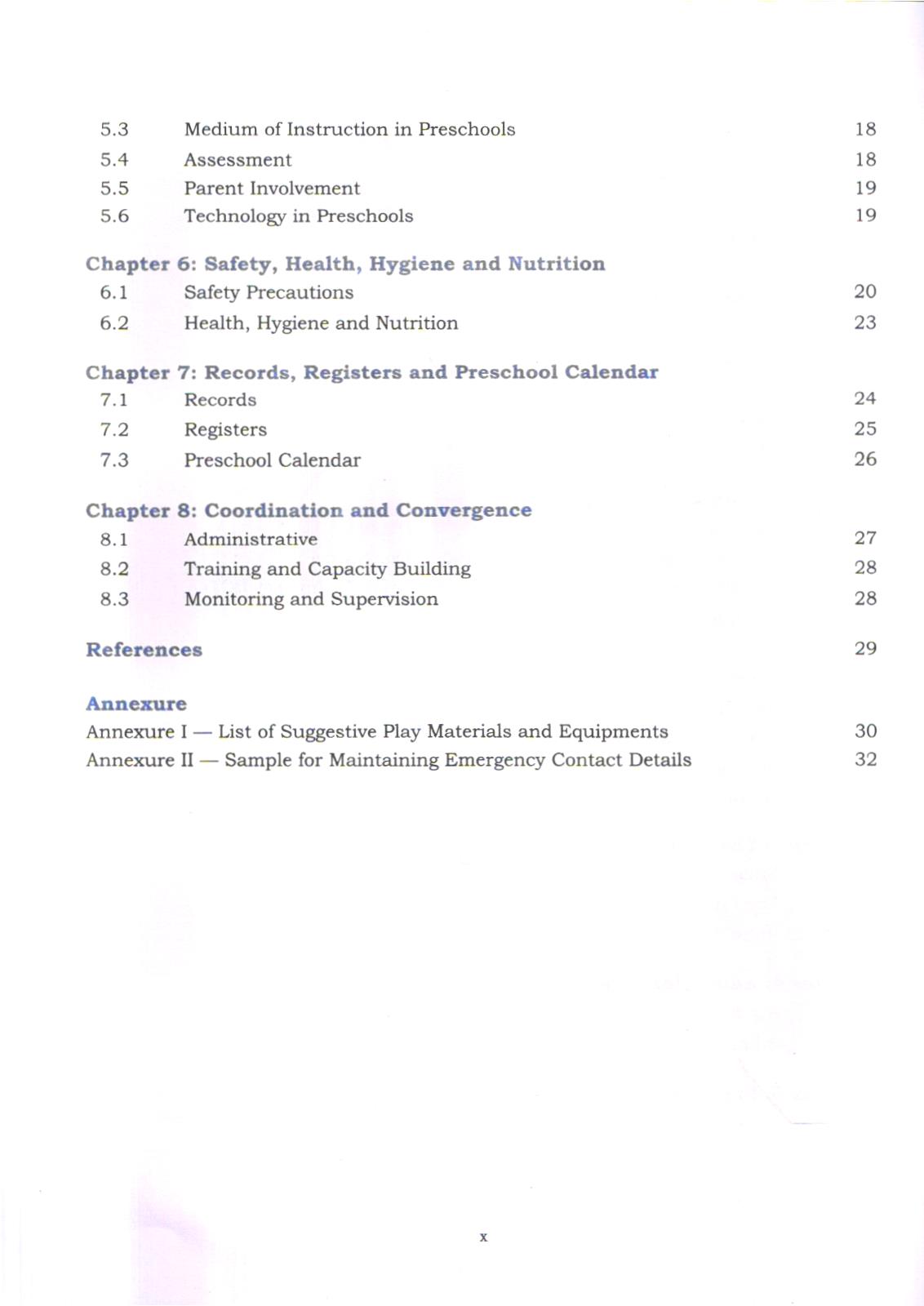FOREWORD
In the present times, it has been realised that for the children to develop holistically, their experiences in the early years must be pleasant, meaningful and age appropriate. It has been proven that the quality of early learning experiences have significant positive impact on school adjustments and the learning levels of children in their later schooling. During the early years, the child’s brain develops at its fastest pace, social and personal habits are formed and foundation is laid for subsequent development in life.
The learning levels of students at the elementary stage are enhanced by preschool experiences of good quality. Providing quality Preschool Education is one of the goals that make the 2030 Agenda for Sustainable Development. It is crucial to invest in these early years by ensuring an emotionally supportive and stimulating play-based environment for every child, which is not only the right of each child, but also a way to lay sound foundation for their life.
It is in this context the National Council of Educational Research and Training has developed two documents- Guidelines for Preschool Education and The Preschool Curriculum to help teachers, administrators, policy planners and other stake holders impart good quality preschool education.
The guidelines present the parameters for infrastructure, qualifications and salary of preschool staff, admission process, records and registers to be maintained, monitoring and supervision and importance of coordination and convergence with community and parents, whereas, the curriculum has been designed for two years of preschool before Class 1, and highlights the goals, key concepts and skills, pedagogical processes and early learning outcomes for Preschool I and II. It also suggests ways of planning a preschool programme, classroom organisation and management, assessment and building partnership with parents and community.
The documents are a result of collective thinking of subject experts, teachers and teacher educators. It is suggestive and can be adopted or adapted by the States, UTs and other stakeholders as per need. The Department of Elementary Education shouldered the responsibility of developing both the documents. The efforts put in by all those involved in its development are appreciated.
The documents were shared with the State Councils of Educational Research and Training, State Education Departments and other stakeholders. Their views and suggestions on both the documents were invited. We are thankful to all those who gave their suggestions. We welcome comments and suggestions to improve the quality and usability of this document.
Hrushikesh Senapaty
Director
New Delhi
September, 2018
National Council of Educational Research and Training











Reviews
There are no reviews yet.